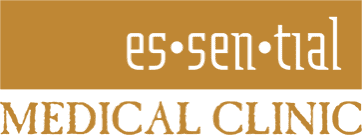Maintaining a healthy lifestyle goes far beyond achieving a visible healthy physique. Lung health is not visible.
You may not often think about lung cancer, but maybe you should. In the end, your lungs allow you to live the life you love.
When you breathe in oxygen and exhale carbon dioxide (a gas that can become toxic), this entire process is through your lungs. It is an essential part of breathing, which is an essential part of life itself.
Lung cancer is often the first thing that comes to mind when thinking about lung diseases. However, these lung health solutions can better prevent and manage many other lung conditions.
Prevention of respiratory diseases
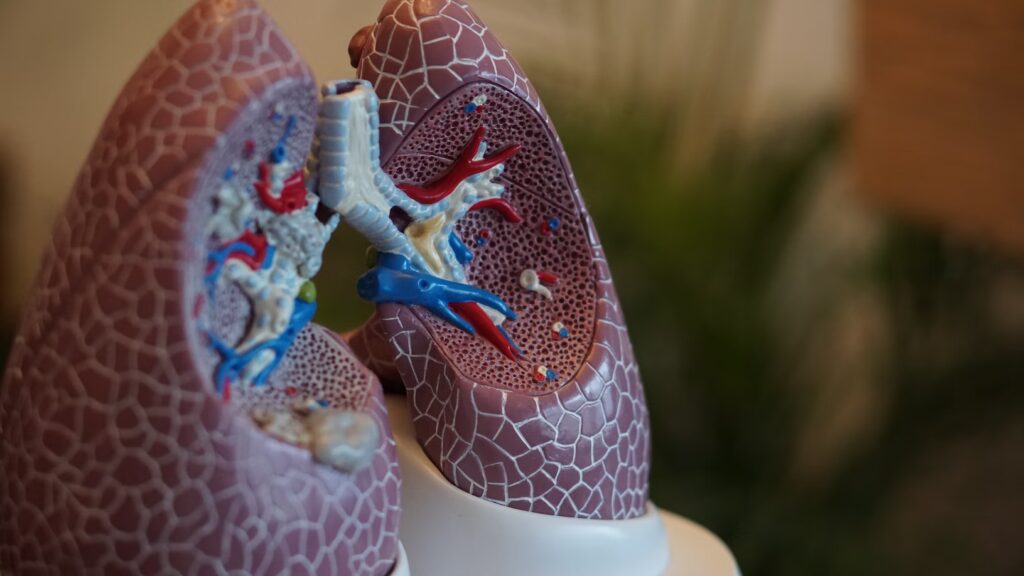
The coronavirus continues to wreak havoc around the world. It can spread faster if you don’t wear a mask, don’t wash your hands, and don’t keep a six-foot distance from others.
Our respiratory tract can also be affected by other diseases and conditions, and we tend to see more respiratory illnesses during cold and flu seasons. Protect yourself from respiratory diseases through various measures.
The prevention of respiratory diseases is not as simple as it seems; there are some simple steps that can be taken to achieve lung health.
Lung Health: Types of Lung Diseases
Pneumonia
Symptoms of pneumonia include narrowed airways, reduced airflow (in and out of the lungs), and shortness of breath, caused by a buildup of mucus or fluid inside the lungs. The most common type of pneumonia is bacterial, which can be the most serious.
There are certain risk factors that can increase the risk of pneumonia, such as age, environment, lifestyle, and health conditions. Due to their immune systems (immature or aged), babies and older people are more likely to get this disease.
Prevention and lung health
As a first step, you should wash your hands and avoid people with respiratory diseases. You can also protect your lungs by getting the pneumococcal polysaccharide vaccine, if your doctor recommends it.
You should consider this prevention if you are over 65 years of age, if you have had medical conditions between the ages of 2 and 64, and if you smoked between the ages of 19 and 64.
Asthma
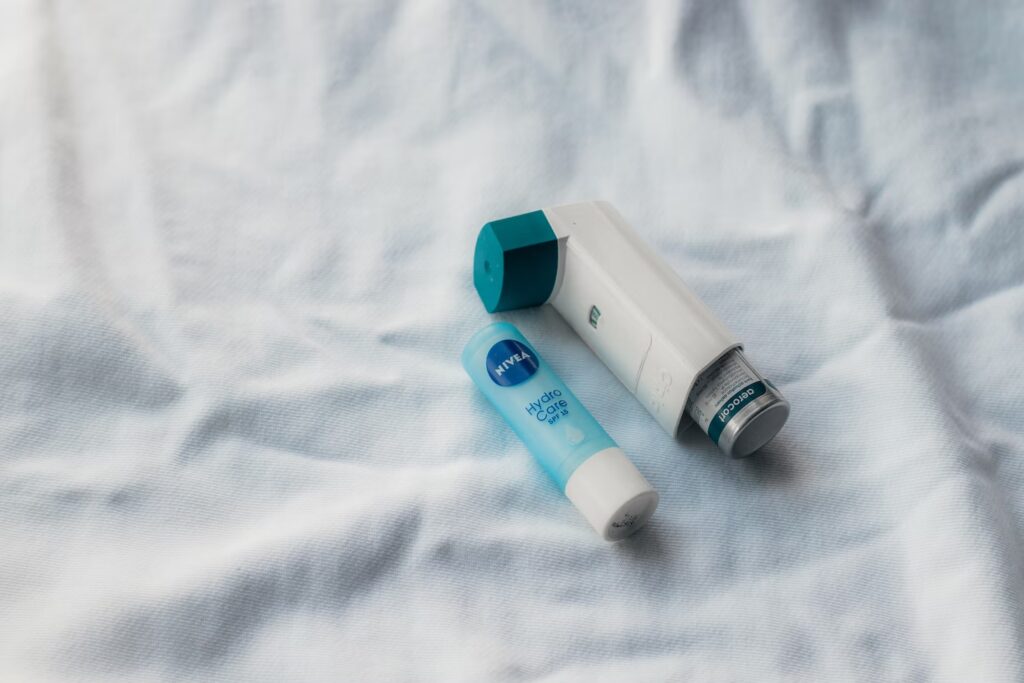
The lungs can become swollen and narrow due to asthma, a chronic lung disease. In addition to wheezing, shortness of breath, chest tightness, and coughing, people with asthma often experience respiratory attacks.
Everyone is affected differently by asthma. In some people, the symptoms are mild, while in others, the symptoms are severe and more frequent.
Lung health and management
Although you can’t prevent asthma, a management plan can help you control your symptoms.
A combination of frequent monitoring, avoiding triggers, and taking medication to control your asthma with the help of your doctor or specialist is often used.
Allergies
Asthma symptoms can be triggered by allergies, which can lead to respiratory infections. If you suffer from seasonal allergies, talk to your doctor. The symptoms of your illness can be treated with over-the-counter medicines or with a referral to a specialist.
Chronic Obstructive Pulmonary Disease (COPD)
As a result of COPD, the airways in the lungs are damaged over time, making it difficult to breathe. Smoking and long-term exposure to pollutants, chemicals, and dust are the most common causes of COPD.
Some symptoms are: shortness of breath, wheezing, coughing up mucus, and tightness in the chest.
Prevention
Keeping your lungs healthy and preventing COPD is as easy as quitting smoking. Consult with your doctor to start quitting smoking and how you can get the best support to do so.
To protect your lung health today and in the future, it’s important to maintain healthy air quality at home, school, and work. Other lung irritants include air pollution, chemical fumes, dust, and secondhand smoke.
Pulmonary embolism (PE)
It occurs when a blood clot travels from the leg and blocks a pulmonary artery after long periods of inactivity or surgery. Without immediate treatment, this can result in less blood flowing through the small blood vessels in the lungs. This can bring life-threatening conditions.
Prevention
Preventing blood clots from forming is the first step in preventing PE:
It is important to know when you are at risk, such as after surgery or pregnancy, or when you are taking certain medications.
Anticoagulants should be taken as prescribed and monitored frequently by a doctor.
Participate in regular physical activity, eat healthy and not smoke, that is, as a healthy lifestyle
Move your legs if you spend a lot of time sitting
Tips for Maintaining Good Lung Health
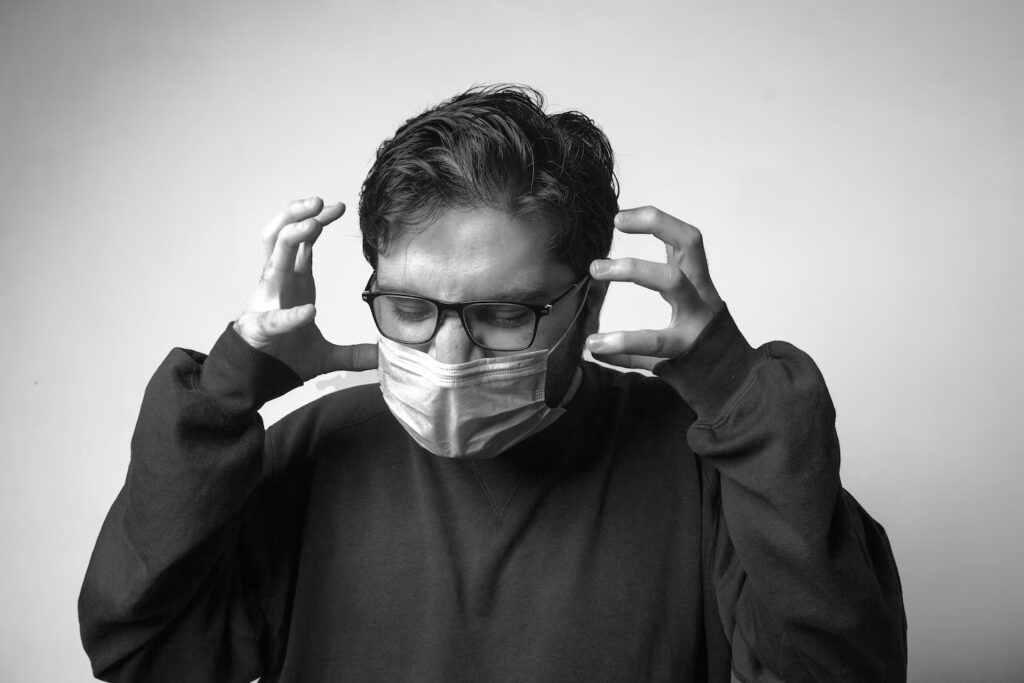
You will breathe a little easier today knowing that you are protecting your future health if you put your head and heart into taking care of your lungs.
What is a respiratory disease?
An infection or disease that affects the respiratory system is known as a respiratory disease. In addition to the nose, throat, sinuses, and lungs, the respiratory tract consists of the mouth, nose, and throat.
Difficulty breathing, coughing, sneezing, fever, runny nose, and coughing are common symptoms of respiratory diseases.
Based on symptoms alone, it can be difficult or impossible to diagnose a respiratory illness.
Several respiratory diseases are communicable, meaning they can be passed from person to person. Illnesses like COVID-19 and the flu fall into this category. COPD is not contagious, as are other respiratory diseases.
These 10 everyday tips will help you maintain good lung health and prevent lung diseases:
1. Don’t smoke or breathe secondhand smoke.
2. Make sure you know the air quality in your environment. Consult your doctor if you are concerned about contaminants in your environment.
3. If soap and water are not available, use an alcohol-based hand cleaner to prevent common colds and respiratory illnesses.
4. Crowds should be avoided during flu season or when other respiratory illnesses are spreading.
5. To prevent the spread of colds and respiratory illnesses, stay home if you are sick.
6. Make sure everyone in your household gets a flu shot.
7. Exercise regularly to improve lung fitness and overall health.
8. Exercise your diaphragmatic breathing or deep breathing.
9. Prevent harmful bacteria from traveling from your mouth to the upper respiratory tract by keeping your dental health and oral hygiene up to date.
10. Be sure to get regular checkups with your primary care doctor and discuss any concerns about your lung health, such as symptoms of lung cancer and a family history of lung disease.
Put on your mask
You can also protect yourself from other respiratory illnesses by taking precautions to prevent the spread of COVID-19.
Limit the time you spend around other people outside of your home and practice social distancing. To help contain respiratory secretions, wear a mask.
Maintain good respiratory hygiene. Use tissues to cover coughs and sneezes. Wash and clean your hands frequently with soap and water for 20 seconds.
Unwashed hands should not be used to touch the face (especially the eyes, nose, and mouth). If you are already sick, you should stay home.
Get vaccinated
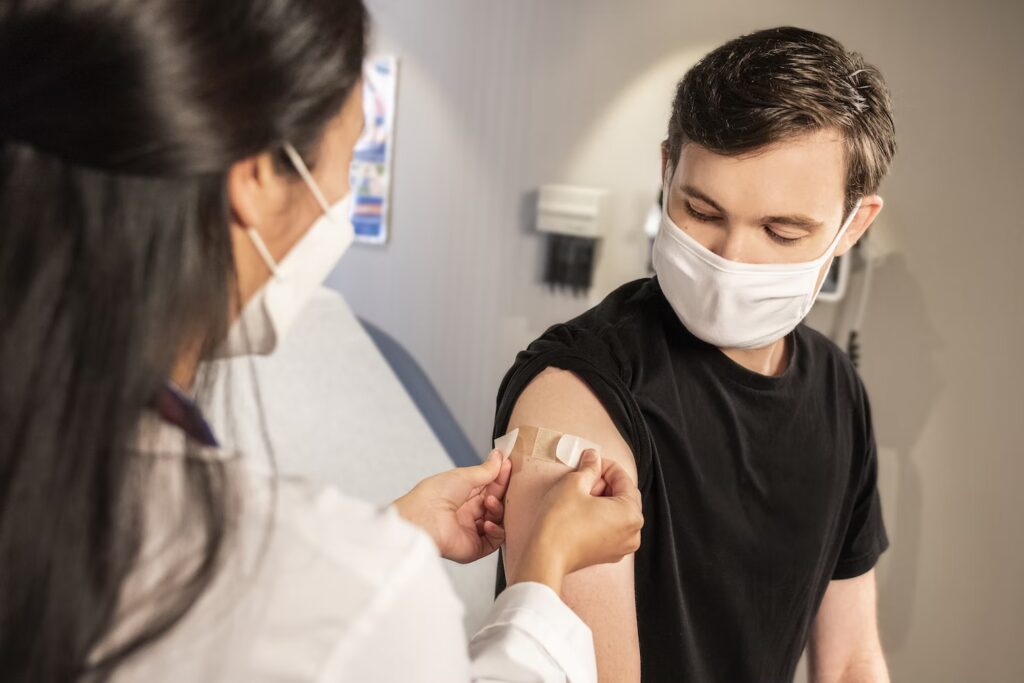
Respiratory illnesses can be prevented by getting a flu shot.
Diphtheria, whooping cough, and measles are some respiratory diseases that can be prevented with vaccines. Preventable diseases can be prevented through vaccination. Annual flu shots are highly recommended. During the coronavirus pandemic, getting a flu shot is especially important.
Do not smoke
90% of deaths from lung cancer and COPD are directly caused by tobacco use.
There is no safe way to smoke. You only damage your lungs and cause a variety of health problems. As a result of smoking, you are more likely to suffer from respiratory infections and complications related to respiratory diseases.
Don’t start smoking if you don’t smoke. Get help if you smoke so you can quit.
Healthy life
Your immune system stays strong when it’s in good health. Your body will be better able to fight respiratory diseases and infections if you do this.
- Exercise regularly and be physically active every day.
- Get enough sleep each night.
- Eat a nutritious diet.
- Schedule annual wellness exams with your doctor.
Security First
When working with chemicals, contaminants, etc., wear safety equipment, such as a mask or respirator, in a well-ventilated area. Sanding, painting, gardening, and using certain cleaning products in the bathroom or kitchen are examples of this.
It is also recommended that you wear a mask when spending time in crawl spaces and attics, as fine particles and mold can damage your lungs.
Improve air quality. Improve the air quality in your home. It is especially important during the pandemic when more people are indoors and at home.
Keep your home clean by vacuuming, dusting, sweeping, and wiping down surfaces. Replace the sheets as needed or wash them weekly. You can even enter your house without shoes or a jacket.
Think about the others
When it comes to respiratory diseases, the default focus is to protect ourselves. Against contagious respiratory diseases, you must protect yourself and others. Contagious diseases are less likely to spread when fewer people get sick.
Stay home if you are sick. Avoid close contact with other people, and cover yourself when you cough or sneeze. Wash your hands frequently and get a flu shot.
Read more articles about health with us:
